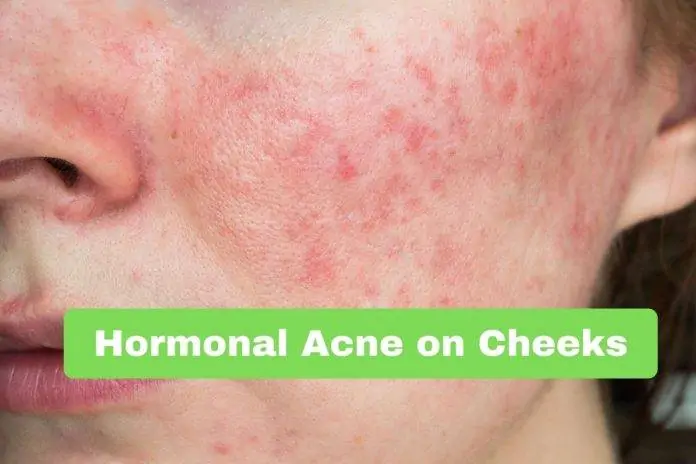Hormonal Acne on Cheeks is a form of acne that is often a symptom of a hormonal imbalance. Symptoms of this condition include redness and pimples that are often painful. However, a few steps can help you treat this type of acne.
Symptoms
Hormonal acne on the eyes is caused by fluctuating levels of certain hormones. This condition is most common among women. However, men can also suffer from this form of acne.
Although it can be difficult to determine the cause of hormonal acne on the eyes, there are some things that you can do to fight it. These include balancing your hormones and eating a nutritious diet.
During midlife, many women experience changes in their hormonal levels. In addition to the natural decline in reproductive hormones, this time in your life can also lead to breakouts. If you are experiencing breakouts, you may need to talk to your doctor. He or she can help you with a treatment plan that will work for you.
While a healthy diet and lifestyle can help you control and prevent acne, there are other ways to treat it. You can choose from a variety of topical treatments, oral medications, and medical procedures.
Antibiotics can also be helpful in treating acne. They kill bacteria that can clog pores. Retinoids are also effective for treating mild to moderate acne.
Causes
Hormonal acne is a common skin condition that can affect adults, teens, and pregnant women. It’s caused by changes in hormones, which leads to increased production of sebum, a waxy oil that moisturizes the skin.
Acne can be prevented or controlled through a variety of measures, including a healthy diet, proper skincare, and medication. If you’re suffering from acne, it’s important to consult a dermatologist to receive a customized treatment plan.
If you have mild hormonal acne, you may be able to get rid of it by simply changing your lifestyle. However, if your acne is more severe, you may need to take prescription-strength acne medication.
You may also find that a diet rich in antioxidant-rich foods can help fight inflammation and prevent acne. Another option is using a topical product containing alpha hydroxy acids.
In addition to eating a healthy diet, a good skincare routine can help you control and clear up hormonal acne. Wash your face daily and use an acne-fighting product on a regular basis.
Treatments
When it comes to treating chest acne, there are a number of factors to consider. These include lifestyle and diet.
For example, a high glycemic diet can trigger a hormonal imbalance that leads to breakouts. Some examples of foods with a high glycemic index are bread, rice and certain fruit.
Another factor to consider is stress. Stress can lead to the production of hormones such as cortisol. This can also lead to the creation of androgens, which are responsible for enlarging the sebaceous glands.
It is important to note that some medications, such as birth control, can balance out the hormonal output. However, some patients may need more clinical treatment to get their chest acne under control.
Also, a good skincare regimen can be of great help. This includes using moisturizers that are non-comedogenic. A non-comedogenic moisturizer is one that does not clog pores.
If you are dealing with a particularly serious case of acne, you might want to consider a trip to the dermatologist. A board certified dermatologist is capable of assessing the condition and prescribing a treatment plan. He or she can also evaluate your acne scars and help you find the right combination of treatments to treat your skin.
Prevention
When you have hormonal acne, it’s a good idea to see a dermatologist. You can find out the best treatments to clear up your skin and keep the condition at bay. If you’re looking for a way to prevent it from happening, you may want to consider some natural methods.
One method is to avoid washing your face too often. Excessive washing can irritate your skin and lead to breakouts. Also, overeating certain foods can worsen your condition.
Another method is to use a mild cleanser on your face. Doing so can help to regulate the oil glands. This can also help you to avoid picking at your pimples, which can cause more redness.
Oral medications can also be used to treat your acne. These can contain anti-androgen drugs. Anti-androgen drugs lower the production of male hormones and oil.
Certain antibiotics can also help you. For example, doxycycline, minocycline, and erythromycin can be effective.
Using a topical retinoid can also help to treat mild to moderate acne. Retinoids speed up the turnover of your skin, which helps to reduce the number of pimples.




